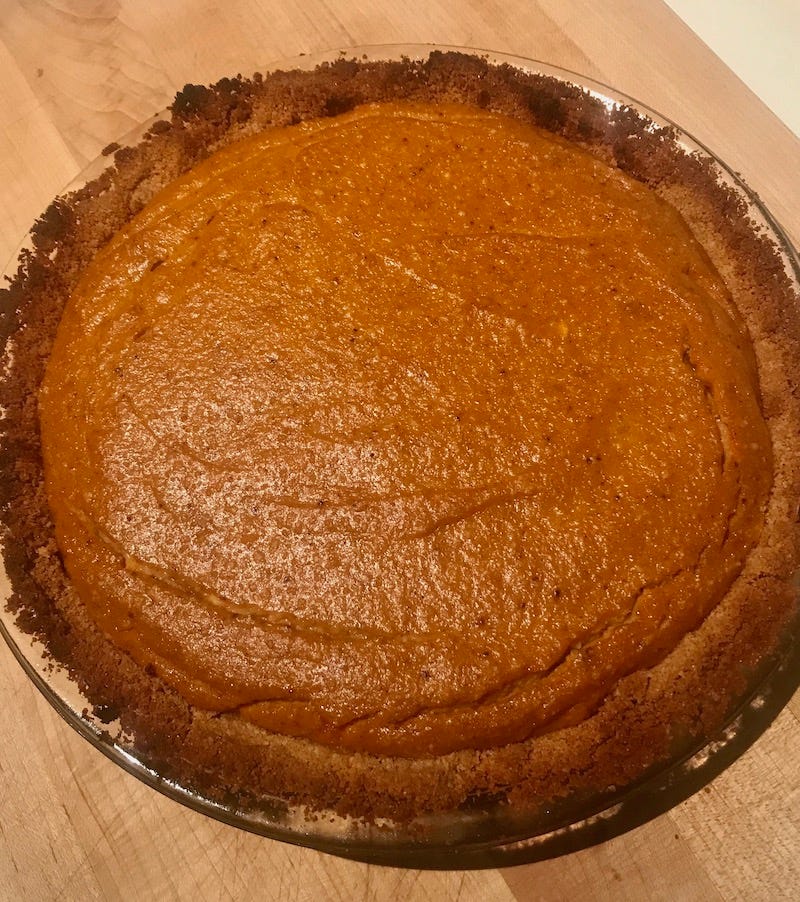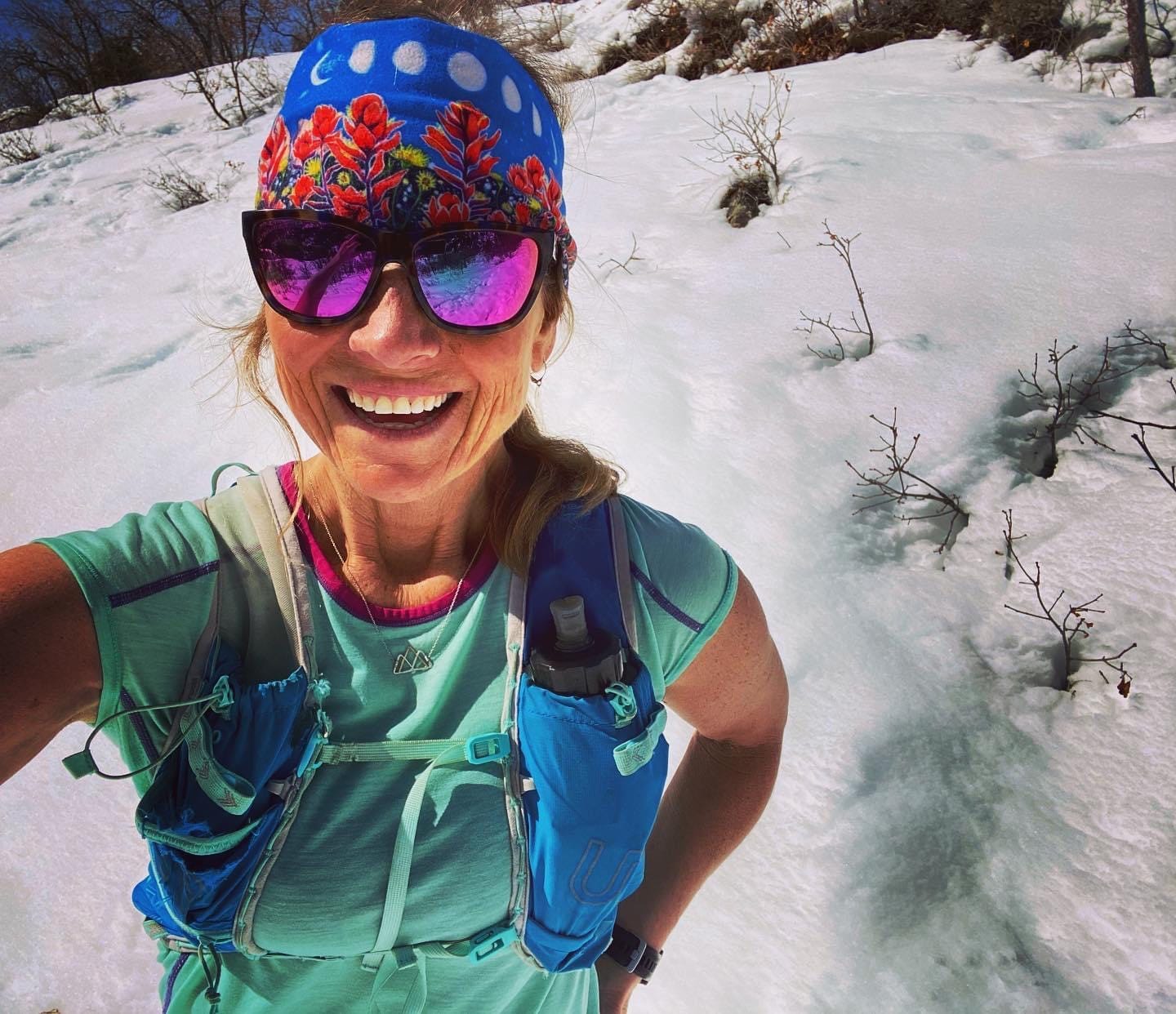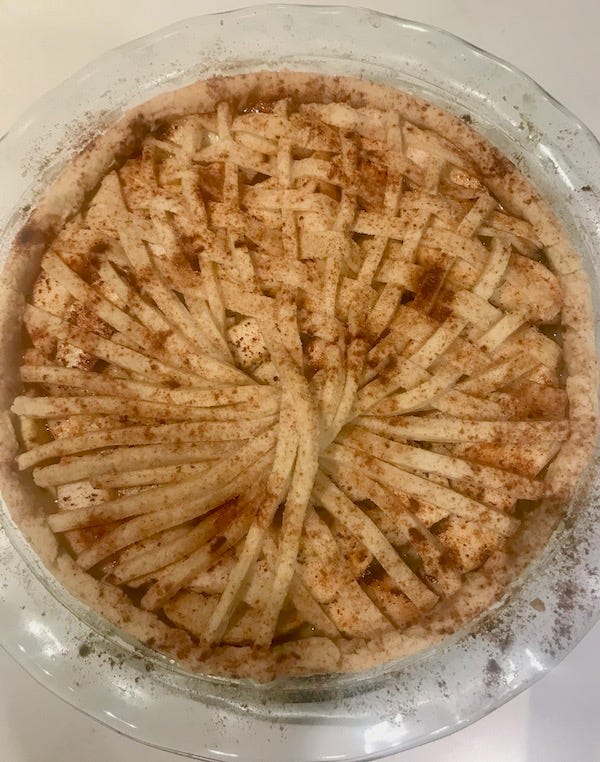Please, Enjoy Some Pie
Food for Thought on Sports Nutrition, Plus a Q&A with Ultrarunner Cara Marrs RD
As a coach, I broach the controversial topic of nutrition with my clients to guide them on fueling to support their training. I’m raising that topic here because Thanksgiving and other holidays are times to celebrate meal-making and feel gratitude for what’s on our plates, not stress or guilt. And, recently, a couple of exchanges with athletes triggered frustration with fads and extremes.
First, a client came to me to restart running and get in half-marathon shape. He’s a big guy who used to be over 250 pounds and wants to get down to 200. Asked about his nutrition on my questionnaire, he replied, “Went keto—eliminated sugars, added in intermittent fasting. Low carb, high fat, red meat.” He also revealed heavy drinking. I felt sympathy for him since he struggles with moderation and deprives himself of nutrient-dense, fiber-rich complex carbs.
I wrote to him, “My hope and intent for you, and for all my clients, is that you develop a positive relationship with your body and with food, and that you think of food as your fuel and friend.”
Then, on social media, an accomplished runner who’s quite thin bragged about her decision to abstain from eating each day until 5 p.m., which she says fights the “flubber” on her stomach.
Exasperated, I replied, “Posts like this and the intermittent fasting fad are risky and unhealthy for many people. It sets up an adversarial and overly controlling relationship with food and can lead to distorted body image. Many runners, especially women, struggle with not enough fueling and fall into the Female Athlete Triad of amenorrhea and weak, injury-prone bones.”
One of the ultrarunning coaches I respect a great deal, Jason Koop, sums up my skepticism with ultra-low-carb eating and intermittent fasting: “There is too much fixation on what you are leaving out (breakfast, for example) and not enough on what you are putting in. If you want to be an athlete, the focus needs to be on the latter. High quality foods, not the absence of them, are what athletes should focus on. When you focus on quality and adequate quantity, and not composition and restriction, the results are physically, emotionally and psychologically healthier outcomes.” (source)
With that context, I contacted an ultrarunner and dietician I admire, Cara Marrs of Steamboat Springs, to ask some questions and share her sensible advice.
I’ve known Cara via social media for several years and have crossed paths with her a couple of times. We’re the same age—she turned 52 last week. She has impressive credentials as a registered dietician and nutritionist who has worked with numerous athletes as well as patients with disease and food sensitivities (check out her background here). She’s also a seasoned ultrarunner who’s completed gnarly mountain ultras—including both Bighorn 100 and Run Rabbit Run 100 in the same year—and the mom of a 10-year-old son.
In the following Q&A about nutrition and the Steamboat Springs trail-running scene, I edited her answers for brevity. I hope you’ll take her advice to heart and have a happy, healthy holiday season.
What are two or three of the biggest mistakes or misconceptions you hear endurance athletes doing or thinking with regard to nutrition, and what would be your advice to them?
Cara: Under-fueling while running too many miles while trying to lose weight; fasting for too many hours a day; and, too low carb.
Carbohydrates are the body’s preferred fuel source; we need carbohydrates to fuel our runs and our life. Remember, carbohydrates are a vast food group from Twinkies and Skittles to sweet potatoes and quinoa, and somehow they all get demonized by certain factions. Training for a big event is not a time to be focusing on losing weight; under-fueling will eventually lead to burnout and injury.
When talking about intermittent fasting, it's a classic example of “a little may be beneficial in some instances, so let's go overboard.” If someone needs to get a handle on their weight or possibly compulsive eating, then eating in a circadian rhythm, let's say from 8 a.m. to 8 p.m., may be helpful. But the problem is that in this extreme culture of diet, that 12-hour eating and fasting window then gets whittled down to eating for 6 hours and fasting for 18 or even more extreme. Eating one time a day is not going to provide the fuel you need, the quality of life, the sustenance and recovery. I work with so many runners who develop disordered eating or a diagnosed eating disorder following these trends. I have worked with some amazing runners, and the most successful ones are those with the best relationships with food—no fads, just good food.
Can you give some tips on how we can prepare and enjoy the Thanksgiving meal (or any special-occasion meal) in a way that makes us feel satisfied, grateful and well-nourished—not stressed or guilty about eating?
I always suggest adding nutrient density to your meals. As an example, I love stuffing at Thanksgiving, and when I make it, I add a lot of mushrooms, celery, nuts like hazelnuts, fresh herbs, etc. While I am enjoying my stuffing, I also know it has added benefits from those ingredients. Holiday meals are not a time to restrict or worry about our calories, and no, we do not need to “earn” our meals.
We’re both over 50. What are a few of the things you’ve done to keep running healthy and completing ultras?
Since turning 50, I’ve had to prioritize sleep. I also added in regular strength training. I make sure to do hot yoga one to three times a week and get massage and physical therapy when time allows. When the strength training or yoga slips, I can feel it, and my challenge is keeping it up when summer running is in full force with time constraints.
I also have raced a bit less, although I might test that this summer. I take extra rest days as I need them. I’ve also had to look at my diet more closely and make sure that I’m getting adequate protein, water and fiber. I’ve always eaten well, but now I need to think about it a bit more.
Let’s talk about Steamboat Springs. I’ve only been there once, for the Run Rabbit Run 100. Tell me about a few of your favorite races, trails and running groups there.
It is such a great running community! I head the Trail Sisters Steamboat group, and we have a longstanding Wednesday night trail-running group in town called Steamboat Trail Runners. For 13 years I’ve helped direct and organize the Steamboat Springs Running Series, a wonderful grassroots set of 12 charity races. I personally direct the Spring Creek Memorial Trail Run in July. We have everything from 5Ks to 100-mile
races in Steamboat and hundreds of miles of beautiful trails to run.
How are your 2022 race plans shaping up? What are you most excited about in the coming year?
I'm excited for a bigger year than the last two. I am ready to ski a lot, then I’m running three desert races from February to April to get in shape. I’ll find a good 50-miler, and then I'm finishing it off with Run Rabbit Run 100 in September where I’ll work on earning my 500-mile buckle. I also hope to pace at Hardrock again if friends get in; I love supporting friends in those type of events. Other than that, I will be biking with my son and husband, and hopefully have some great family trips to camp and backpack with our two goldens.
Cara will be taking on a few more clients in January; if you are interested in her services, contact her here. You can also follow her on Instagram @cara_marrs_wellness.
Thank you for reading this post, and I hope you will consider subscribing or sharing it.








Love the whole thing but here is what I really appreciate- an older, female ultrarunning mother’s voice in this whole nutrition thing. This is a breath of fresh air. Thank you, Sarah and Cara.
I LOVE this!